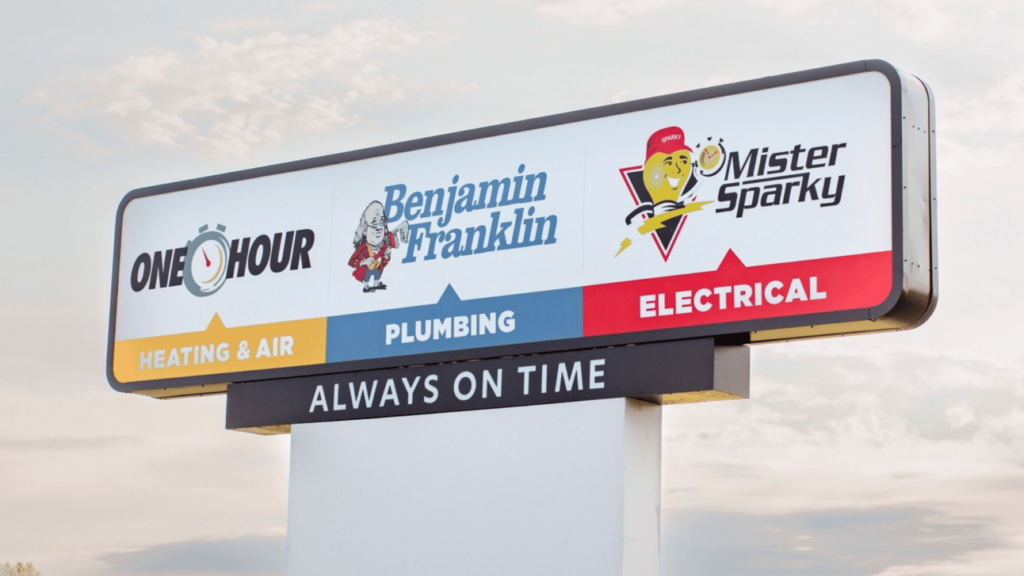General Manager Jeff Carpenter on how to run an efficient call center
Notes on dispatchers versus CSRs, metrics, and smiling

Image: Travis Crawford Heating, Cooling & Plumbing
❝
In our industry, unfortunately, CSRs have always been — and probably will always be — the most undervalued component of the business, but they are so vital and so important.
Jeff Carpenter is the General Manager of Travis Crawford Heating, Cooling & Plumbing. We talked to him about all things call centers, and he gave us his insights on setup, metrics, tactics, and more.
Our conversation’s been lightly edited for clarity.
How’d you end up at Travis Crawford?
Travis and I have personally known each other since middle school, and every day when I was [working] at Duke Energy, he’d call my desk phone. He’d be riding around in a truck; at that point, he had a few employees, and we’d just shoot the sh*t. One day, I just said, “Why don’t I just leave here and come work with you?”
It was kind of a joke, but a couple months later, I said another thing. We ended up going to dinner and talking about it. He’d been in business for about five to six years, and long story short, I ended up coming aboard — I knew nothing about HVAC.
For about four months before I left Duke, I came into his office every Friday to see how everything worked — invoicing, the dispatch board, all these various things. And on January 2nd, 2017, I officially became an employee of the company.
Let’s talk about call centers. Any high-level thoughts?
In our industry, unfortunately, CSRs have always been — and probably will always be — the most undervalued component of the business, but they are so vital and so important. No matter what the customer says or what’s going on in their personal lives, when they answer that phone, they represent the company; they’re the first line of contact.
How is TC’s call center set up?
For the past couple years, we’ve had dedicated CSRs. Their main job is to answer the phones, handle the calls, and book the calls. And then we have dispatchers. They’re in the same room, but they’re separate from CSRs. They communicate with them, but their job is to find the right technician for the right call.
Why do you have it set up that way?
You want to have them separated because if I’m looking at a call board as a CSR on the phone with a customer, it’s easy to say we can get out there today, or that we’re booked today. They’re in the moment and not sure of all the moving parts. [Before we reorganized], we were overbooking ourselves, overextending ourselves, or selling ourselves short on the efficiency side.
Can you give me an example of how a call actually gets booked?
The only call time we guarantee is an 8am, first call of the day. [But aside from that], we’ll say, “Yes, we can get you locked in on our schedule. Tell me about your availability.” They’ll let us know they’ll be home until noon, before stepping out for two hours to pick up the kids from school, and then back at 2pm for the rest of the night.
We’ll put it down that after 2pm works, and our dispatcher will touch base with them — via text or call, whichever they prefer — to give them an idea of whether we’re looking at the 2pm time range or closer to 3:00 or 3:30.
Once the technician’s en route, we’ll give them a heads up 30 minutes to an hour out. That’s the way we position. We know they have stuff going on, but we’re gonna do everything we can to keep you informed about where our guys are at in their schedule.
What’s a specific tactic you deploy that helps with efficiency?
We have our [dispatch] board set up to where you see the customer’s name, but other than that, you just see their ZIP code. You want to look at the ZIP codes, work people out, and then work them back home.
Also, especially toward the end of the week, knowing where your techs are as far as hours. Do you have a couple who have gone home early every afternoon, and some who’ve worked their butts off the first couple of days? Now you want to balance that out.
❝
People don’t know what to expect, so when they call that phone, having empathy and smiling and sounding like you give a damn makes a huge difference.
What are the most important metrics to track?
We look at call booking rates — so important! On the dispatching side, a huge thing is optimization. You want to always dispatch for dollars; you want to have the right tech on the right call. If you’ve got a tech who’s hot, just like sports, keep feeding him the demand calls because he’s going to convert.
You’ve got to know your techs and their skill sets. Some techs are really good with senior citizens — they take their time, they talk slower — and some have more knowledge of different types of systems, for example.
What does dispatching for dollars mean?
This is a dispatcher's job: look at the previous customer history. Who was there last? What did they quote? Were they there for a service or maintenance? We’ve also got four 60-inch TVs in our call center that show the performance of CSRs — how many calls they’ve taken, what their booking rate is — and technicians. Who’s hot for the day, week, or month?
If four calls come in and they’re all brand new customers, we’ll take who’s got the oldest unit and is near the highest-performing technician that day or that month. And it’s imperative that your dispatchers take time to learn the technicians — talk to them, know their personalities, know their numbers.
How do you handle after-hours/weekend calls?
We have a technician on call seven days a week, and someone who answers the phone from 7:30am to 5:30pm. If you have an emergency situation after that, the on-call technician will come out to the house. We take phone calls up until 8pm during the week.
If you wake up on Saturday morning, and it’s hot in the middle of the summer, we have on-call technicians — two in the summer — who work from 8am to 8pm on weekends. We don’t schedule any routine maintenance or anything; we leave weekends wide open for emergency services.
What are some of the biggest challenges you’ve had with your call center?
One of the biggest is communication. Not between the CSR and dispatcher, but between the technician and dispatcher. We have a “mid-call” where techs let the dispatcher know where they’re at in their call — how long they’ll be and when they’ll get to the next.
I can’t tell how you many meetings have been had on, “You’ve got to communicate with your dispatcher.” Customers will tell a CSR that they need an hour heads up, and techs will tell their dispatcher, “I’m wrapping up in 5 minutes.” How will we give the customer an hour heads up when you’re done in 5 minutes and it takes you 20 to get there? Communication. I cannot tell you how extremely important it is.
Are there any changes you’re looking to make to your call center?
Eventually, you max out the amount of technicians that a dispatcher can properly manage. Generally speaking, they say about 14 is your max, and that’s for one hell of a dispatcher. Some companies have two dispatchers for 10 technicians, and in that case, you’re training them to be lazy. So we’ll be looking at that.
And then there’s forecasting. How many active maintenance contracts did we have last year? How many did we run in the spring of last year versus this year? When is it going to start getting hot? We want to be growing our maintenance division tremendously year after year.
Anything else you want to say?
Smile. It’s so simple and so stupid. I’ve actually thought about putting a small mirror on top of their monitors so they have to see themselves all day. Smiling brings so much to a phone call. And run contests for them, like on a random Tuesday. The first person who sells five maintenance contracts today gets a $20 gift card. I personally like daily or weekly versus monthly; it keeps engagement going.
The most important thing to remember is that the majority of US consumers only deal with HVAC replacements once or twice in their lifetime. People don’t know what to expect, so when they call that phone, having empathy and smiling and sounding like you give a damn makes a huge difference.
📬 Get our stories in your inbox
Keep reading
Inside Air Pros’ bankruptcy filing
The company on Sunday filed for Chapter 11 bankruptcy protection in Georgia, as part of a year-long restructuring effort
ServiceTitan inks partnership with Authority Brands
The company will become the go-to software provider for all One Hour, Benjamin Franklin, and Mister Sparky franchises
Fixinit launches Uber-like platform for HVAC
December 18, 2023


